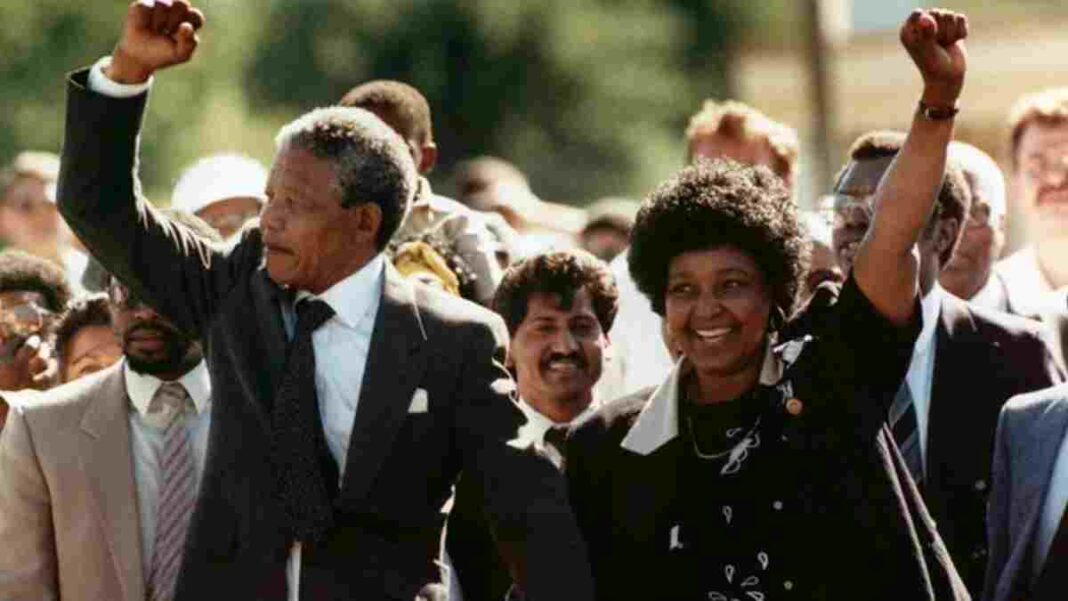INDIA: February 11, 2023, marks the 33rd anniversary of Nelson Mandela’s release from prison.
The former South African president had been imprisoned for 27 years, and 11 of those years were spent in Victor Verster Prison.
Mandela’s release was a turning point in the country’s history and marked the beginning of a new era for South Africa.
Nelson Mandela was arrested in 1962 for his activism against the apartheid regime. He was sentenced to life in prison and spent the next 27 years behind bars, during which time he became a symbol of the anti-apartheid movement.
Mandela’s imprisonment sparked international outrage, and many people and organisations worldwide campaigned for his release. However, it wasn’t until 1990, after 11 years in Victor Verster Prison, that Mandela was finally released.
On February 11, 1990, Nelson Mandela walked out of the Victor Verster Prison, hand in hand with his wife, Winnie Mandela.
A crowd had gathered outside the prison, and they erupted in cheers as they caught a glimpse of the beloved freedom fighter.
Mandela’s release was broadcast on TV worldwide, and people in every corner of the globe celebrated the end of his long and unjust imprisonment.
Mandela’s release was a watershed moment in South Africa’s history. The country was in the grips of apartheid, a system of racial segregation and discrimination that had been in place since 1948.
Under apartheid, people of colour were forced to live in separate areas and denied fundamental rights and freedoms. The system was brutal and oppressive and was subject to intense international condemnation.
Mandela’s release signalled the beginning of the end of apartheid. It was a moment of hope and optimism, as people worldwide believed that change was finally possible.
Mandela went on to lead negotiations with the apartheid government, which ultimately led to the country’s first democratic elections in 1994.
Nelson Mandela later became the first black president of South Africa, and his election marked the beginning of a new era for the country.
Mandela’s legacy is a testament to the power of perseverance, courage, and forgiveness.
Despite spending nearly three decades in prison, Mandela never lost his commitment to the cause of justice and equality.
He remained steadfast in his belief that everyone should be treated with dignity and respect, regardless of race or background.
Mandela’s release was a victory not just for him but all those who had fought against apartheid and for a better South Africa.
Today, Mandela’s legacy continues to inspire people around the world. His story is a powerful reminder of the importance of standing up for what is right, even in the face of overwhelming odds.
Mandela’s message of peace, reconciliation, and forgiveness remain as relevant today as it was in 1990.
In a world that is often divided by race, religion, and politics, Mandela’s example of leadership and humanity serves as a beacon of hope and inspiration.
As we mark the 33rd anniversary of Nelson Mandela’s release from prison, we should reflect on his life and legacy.
Mandela was a man of great courage and integrity who dedicated his life to pursuing justice and freedom. His release from prison in 1990 was a historic moment that changed the course of South Africa’s history.
Today, we celebrate his life, honour his memory, and recommit ourselves to building a more just and equitable world.
Also Read: National Mathematics Day: Remembering the Genius Srinivas Ramanujan on His Birthday



